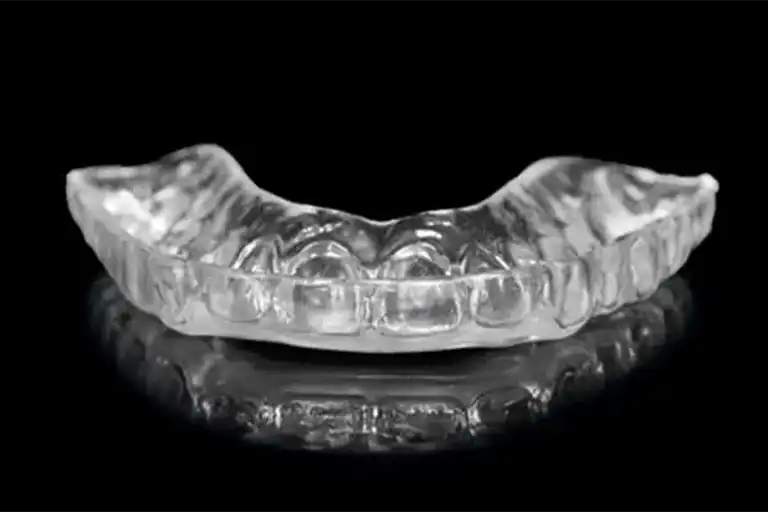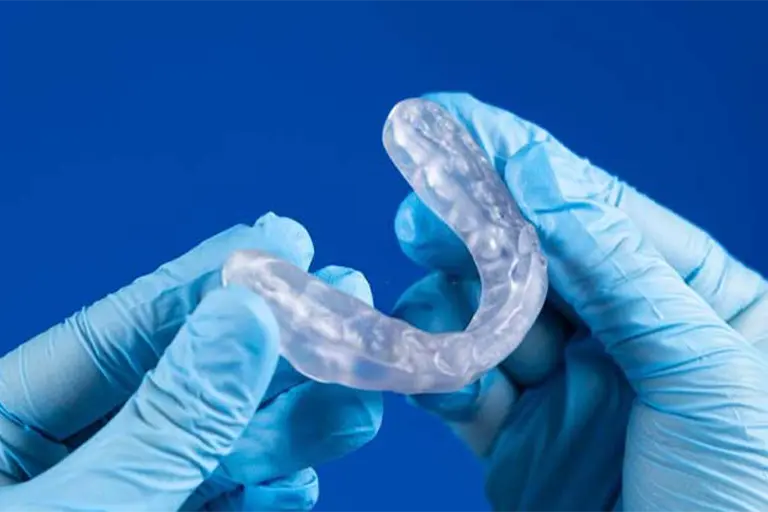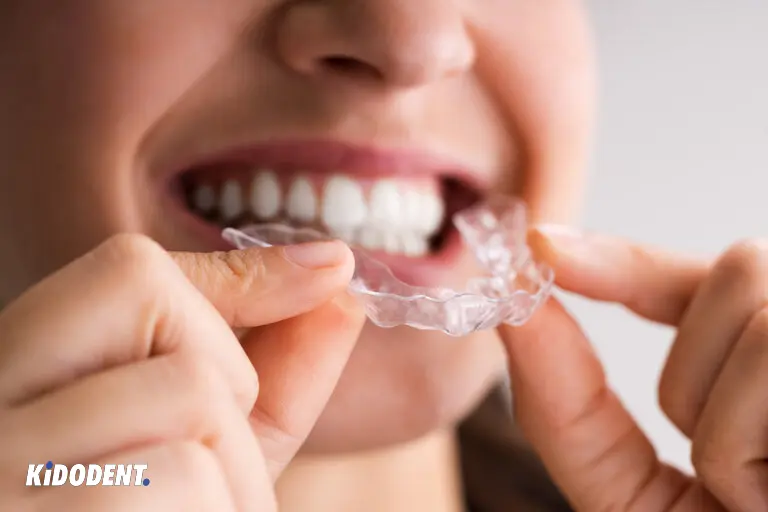You might wear a mouthguard during sleep, likely to protect your teeth from grinding or clenching, the condition called bruxism. Sometimes, night guards are also recommended for people who have sleep apnea or jaw pain disorders like TMJ. But after wearing your mouthguard, you began to realize you have trouble adjusting and how it feels in your mouth. In this article, we will provide you tips for sleeping better with your mouthguard and strategies you can try to get used to wearing them.
Why wear a mouthguard at all?
One of the main reasons why you may be wearing a night guard is teeth grinding and clenching habits during the night. This is medically known as sleep bruxism, although there are some people who grind or clench during the day, too. If this behavior goes on, it causes teeth to wear down and even worse to chip and break.
The jaw and facial muscles are active intensely during the grinding or clenching episodes. This leaves you with sore jaw muscles, headache, and pain in the face and neck. Therefore, you will likely need to wear a night guard to prevent further bruxism damage to your teeth.
Mouthguards offer solutions to improve many more issues. For example, your doctor may want to manage or treat your obstructive sleep apnea, a serious condition in which a person experiences pauses in breathing during sleep. Or, if you snore, you might also require a night guard to help you stop that and make good night sleep.
There are various situations in which wearing a night guard can be beneficial. Also, it is important to know that depending on what they might serve, mouthguards are designed and made differently.
How to get used to sleeping with a mouthguard?
Knowing that your mouthguard helps relieve your teeth grinding and sleep apnea symptoms, it is time to discover some tips about sleeping with this effective oral appliance:

Adjusting takes time, so be patient
During the first couple of nights, wearing a night guard may feel weird especially if you are new to them. You need to wear it more often to prepare your body to go to sleep that way. Unless your appliance is not custom-made which requires you to change your appliance, having some minor discomfort can be normal initially. Eventually, as wearing your mouthguard becomes a habit, you may not even realize you are wearing it.
Here are some helpful ways to adjust to sleeping with a mouthguard:
- Put the night guard in the last minute of your bedtime to give less time for discomfort before falling asleep.
- Try wearing the guard daytime to create a habit and familiarize your mouth with the device.
- Wait at least a month and don’t give up on wearing the night guard soon. Be consistent to become accustomed to it.
Choose a custom-made night guard
You cannot go along with the improper fit of a mouthguard every night. Wearing a mouthguard that isn’t made for your teeth size and jaw shape can result in more damage to your teeth and oral health rather than just not sleeping well.
There are both custom and over-the-counter night guards available. A custom-fitted mouthguard by your dentist is the best solution to go for. They are created specifically to fit your teeth, so they tend to be excellent in terms of comfortable fit, material, and protection against teeth grinding.
Over-the-counter types like stock mouthguards don’t provide the proper fit and comfort you are looking for, as they are one-size-fits-all which are made for any mouth.
There are other categories of OTC mouthguards such as boil-and-bite. With them, you will have the benefit of making your own impression of teeth at home and creating a mouthguard that molds to your teeth. Although much better than stock types, boil-and-bite mouthguards may not fit perfectly since they are not professionally crafted like the custom mouthguards you get from a dental lab.
So regardless of the reason for your night guard, you will have a better sleep with a night guard from your dentist.
Consider the best appliance material
There are various material options ranging from hard, soft, and hybrid (also called dual laminate) mouthguards. Discuss your options with your dentist. A hard mouthguard is made of hard acrylic which is not flexible in your mouth, making them uncomfortable and irritating. On the other hand, a soft mouthguard is more comfortable and easier to adjust to because of its soft and flexible material.
If you are a heavy teeth grinder, though, a hybrid guard may be a better option. It is hard from outside and soft inside.
Talk to your dentist about getting a mouthguard that is made of thin but effective material. It is far easier to get used to wearing a thin mouthguard which takes less space in your mouth.
OTC mouthguards are usually bulky and rub against your gums and soft tissues. Go with a custom appliance if you want a good night sleep and the safety of your oral health.
Switch to upper or lower night guard
It is interesting but sometimes it is just the matter of not getting the correct night guard on your teeth. Most of the time, you will only have a night guard to fit on your upper teeth. However, there are some that fit on your lower teeth and others that fit on both upper and lower teeth interchangeably.
Try to swap the position of your appliance for both upper and lower teeth. If you get the wrong guard, it can hurt your teeth and affect your sleep.

Keep your mouthguard clean
Cleaning your mouthguard is essential to prevent bacteria from growing on your guard and in your mouth. This helps keep your mouth fresh and get you sleep better. Each time before putting your mouthguard in, brush your mouthguard with soap and cool water or brush with mild toothpaste.
In addition to daily cleaning, deep clean your device weekly by soaking it in an antiseptic mouthwash or a mixture of hydrogen peroxide and vinegar.
Conclusion
These factors help you sleep comfortably with your night guard. Bruxism and sleep apnea are two common reasons why you may be using this oral appliance. Getting a custom-fit mouthguard may also help alleviate the symptoms of jaw pain and TMJ disorders.
However, it is important to treat the root cause of your medical condition. Mouthguards may not always be a solution, so you should seek dentistry or other medical care and treatment. Follow your dentist or doctor’s advice and instruction before trying a mouthguard.
While effective, these oral devices can have harmful consequences if used incorrectly and without medical professional supervision.
Frequently asked questions
Although wearing a night guard at first causes you some discomfort, it shouldn’t take long and should resolve after you adjust to it. If you feel pain and soreness in your jaw muscle or in your mouth or feel that your teeth hurt, stop using your guard and call your dentist.
It may take three to four weeks before you adjust to wearing a mouthguard. If yours is taking more time, talk to your dentist. There may be some problems with fitting rather than just getting used to wearing.
